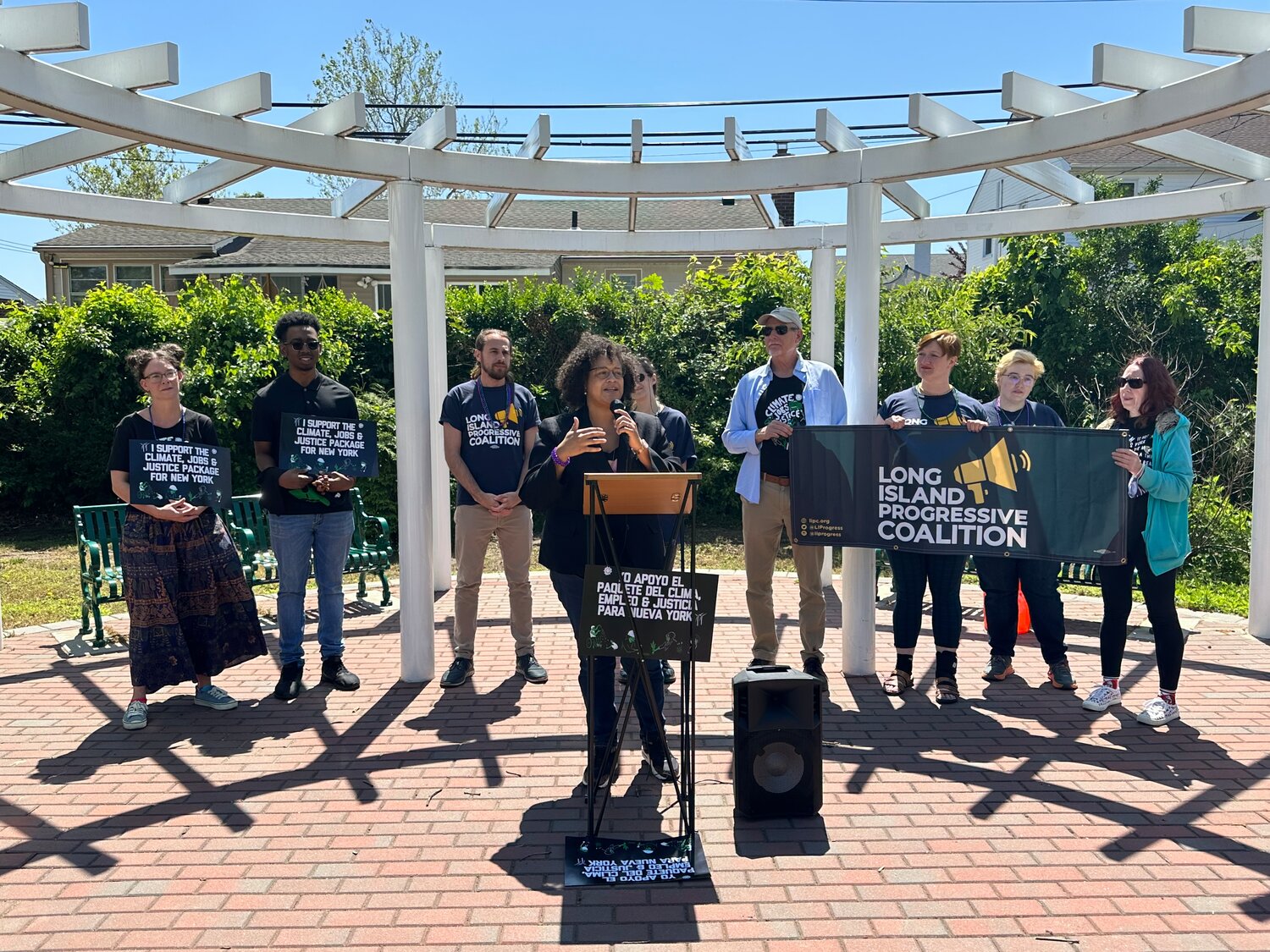Deadline draws near for New York to achieve its climate goals. Here's why Assemblywoman Michaelle Solages and climate activists say Albany needs to fast-track its efforts.
Assemblywoman Michaelle Solages rallied with members of the Long Island Progressive Coalition in Mill Brook Park to show their support for the “Climate, Jobs, and Justice” legislative package.
The May 25 rally was among many that took place across the state demanding that legislators in Albany pass the remaining suite of bills aimed at providing a committed source of funding to the state’s environmental goals before the Legislature ended its session last week.
The effort seemed to have missed the mark, but on that starkly sunny day last month, the assemblywoman chose the green scenery of Mill Brook Park as a backdrop to show the importance of preserving Long Island’s ecosystem before there is further environmental fallout.
The Long Island Progressive Coalition is a community-based organization, founded in 1979, that is dedicated to social, racial and climate justice. The LIPC is a part of a statewide coalition called NY Renews, composed of over 300 organizations.
According to NY Renews, the package is “a legislative roadmap to rapidly decarbonize New York, make our state healthier and more equitable, ensure a just transition for workers, and help create an accessible green economy for all.”
This piece of legislation has three-pronged goals in mind. First, they want New York to enforce and fund the Climate Act passed in 2019. The act spelled out specific statutory mandates for decarbonization. It aims toward achieving its goal of zero-emission electricity by 2040 and a reduction of at least 85 percent below 1990-level greenhouse gas emissions by 2050. But the act has little teeth without state funding. And lawmakers have yet to provide a funding mechanism.
Secondly, they want to build different measures aimed at bolstering the state’s renewable energy infrastructure, effectively creating a cleaner environment and more environmentally friendly jobs.
Lastly, they want to tax and fine companies who are the top industry polluters. They also want to tax the “ultra-rich” of New York to pay for their excessive pollution. The funds they used to tax companies will be pumped into funding more renewable energy projects.
Solages and advocates said that race and income often define the fault line separating disadvantaged communities, those most susceptible to the deleterious impact of climate change, from those less vulnerable. And argues that those who’ve largely profited the most from this imbalance should be the first to pay up.
“As a person who represents Valley Stream which was deemed a disadvantaged community by the Climate Working Group, we know that we need to act aggressively in combating the effect of climate change,” Solages said.
This legislative package not only fights the impacts of climate change but is also expected to help New York’s economy by creating “green” union jobs.
“Long Island is at the forefront of climate change, we need to stand up and have the political courage to get this done,” Solages said.
Have an opinion on this article? Send an email to jlasso@liherald.com.

 44.0°,
Mostly Cloudy
44.0°,
Mostly Cloudy 




